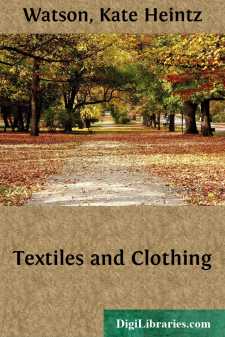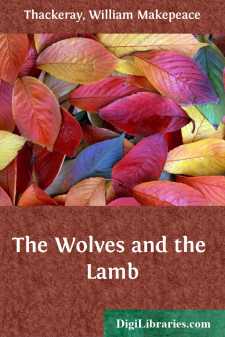Fiction
- Action & Adventure 180
- Biographical 15
- Christian 59
- Classics
- Coming of Age 5
- Contemporary Women 3
- Erotica 8
- Espionage/Intrigue 12
- Fairy Tales, Folklore & Mythology 236
- Family Life 169
- Fantasy 117
- Gay 1
- General 596
- Ghost 32
- Historical 808
- Horror 43
- Humorous 160
- Jewish 25
- Legal 4
- Medical 22
- Mystery & Detective 315
- Political 49
- Psychological 41
- Religious 64
- Romance 159
- Sagas 11
- Science Fiction 730
- Sea Stories 113
- Short Stories (single author) 537
- Sports 10
- Suspense 1
- Technological 8
- Thrillers 2
- Urban Life 31
- Visionary & Metaphysical 1
- War & Military 173
- Westerns 199
Classics Books
Sort by:
CHAPTER I. A BABY had come, but he was not welcome. Could anything be sadder? The young mother lay with her white face to the wall, still as death. A woman opened the chamber door noiselessly and came in, the faint rustle of her garments disturbing the quiet air. A quick, eager turning of the head, a look half anxious, half fearful, and then the almost breathless question, "Where is my baby?"...
more...
CHAPTER I. SNOW had been falling for more than three hours, the large flakes dropping silently through the still air until the earth was covered with an even carpet many inches in depth. It was past midnight. The air, which had been so still, was growing restless and beginning to whirl the snow into eddies and drive it about in an angry kind of way, whistling around sharp corners and rattling every...
more...
by:
Harold Brett
CHAPTER I Having made final inspection of the knots of her shoe-laces and the fastenings of her skirt, Janet turned toward her "perfectly horrid" oilcoat, which, as usual, had spent the night on the floor. As it would never come off till she had tortured her fingers on the edges of its big rusty buttons, she always parted from it on unpleasant terms, casting it from her; whereupon this...
more...
TEXTILES AND CLOTHING Origin of Textile ArtsSpinning and weaving are among the earliest arts. In the twisting of fibers, hairs, grasses, and sinews by rolling them between the thumb and fingers, palms of the hands, or palms and naked thigh, we have the original of the spinning wheel and the steam-driven cotton spindle; in the roughest plaiting we have the first hint of the finest woven cloth. The need...
more...
CHAPTER I All the materials used in the manufacture of clothing are called textiles and are made of either long or short fibers. These fibers can be made into a continuous thread. When two different sets of threads are interlaced, the resulting product is called cloth. The value of any fiber for textile purposes depends entirely upon the possession of such qualities as firmness, length, curl, softness,...
more...
CHAPTER FIRST. THE LANDSCAPE OF THE STORY. I see old Sylvester Peabody—the head of the Peabody family—seated in the porch of his country dwelling, like an ancient patriarch, in the calm of the morning. His broad-brimmed hat lies on the bench at his side, and his venerable white locks flow down his shoulders, which time in one hundred seasons of battle and sorrow, of harvest and drouth, of toil and...
more...
by:
Richard Neville
"Is all our company here?" —Midsummer Night's Dream. Yes, he was a strolling player pure and simple. He was an actor by profession, and jack of all trades through necessity. He could play any part from Macbeth to the hind leg of an elephant, equally well or bad, as the case might be. What he did not know about a theatre was not worth knowing; what he could not do about a playhouse was...
more...
THE THAMES AT SINODUN HILL Fresh water is almost the oldest thing on earth. While the rocks have been melted, the sea growing salter, and the birds and beasts perfecting themselves or degenerating, the fresh water has been always the same, without change or shadow of turning. So we find in it creatures which are inconceivably old, still living, which, if they did not belong to other worlds than ours,...
more...
THE WOLVES AND THE LAMB. ACT I. Scene.—MILLIKEN'S villa at Richmond; two drawing-rooms opening into one another. The late MRS. MILLIKEN'S portrait over the mantel-piece; bookcases, writing-tables, piano, newspapers, a handsomely furnished saloon. The back-room opens, with very large windows, on the lawn and pleasure-ground; gate, and wall—over which the heads of a cab and a carriage are...
more...
CHAPTER I A FORBIDDEN COUNTRY Tibet was a forbidden land. That is why I went there. This strange country, cold and barren, lies on a high tableland in the heart of Asia. The average height of this desolate tableland—some 15,000 feet above sea-level—is higher than the highest mountains of Europe. People are right when they call it the "roof of the world." Nothing, or next to nothing, grows...
more...











